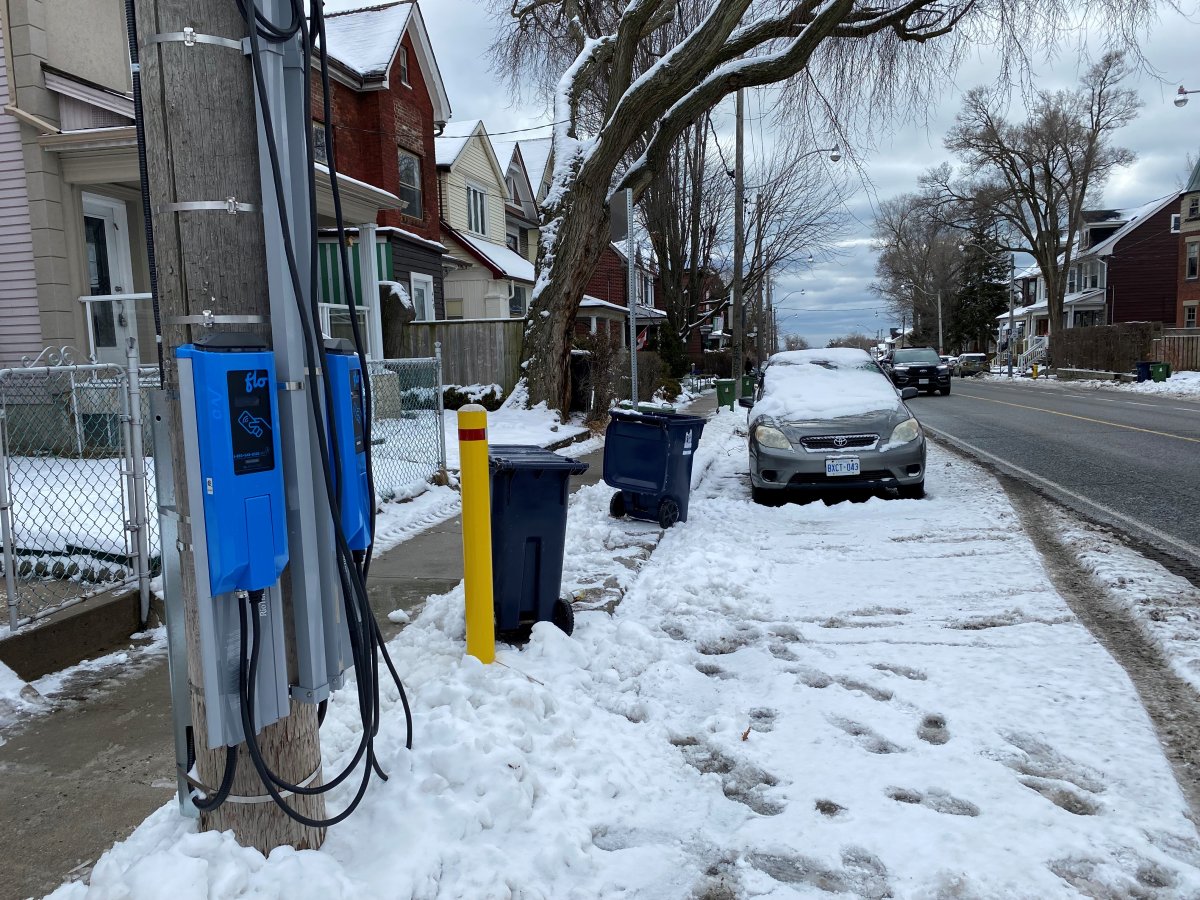Between the cost of gas and climate awareness, the push for electric vehicles (EV) is growing by the year, but a Toronto city councillor is warning the city needs to address a major gap by answering a question asked by anyone considering a switch to an EV — just where will people get their charge?

Diane Saxe has a motion before the city’s infrastructure and environment committee next week, asking staff to come up with a plan to address the need for more expansion to EV charging stations, by allowing people to install their own options.
“Right now we’re in that transition, we don’t have a lot of public charging spots available,” said Saxe. “They are growing and they’re growing fast. My question to staff is do we have any way of letting people pay for their own charging spot, but on the street in some sort of fair and manageable way?”
Beginning in the fall of 2020, the city began a pilot program to deploy on-street public EV charging with Toronto Hydro. Seventeen EV charging devices were installed on nine streets over a 12-month period. Another 59 chargers were to be installed after city council approved an expansion in 2022, with a minimum of 50 more planned instalments this year.
The Toronto Parking Authority is now responsible for installing and operating the city’s EV charging stations and it plans to install up to 500 of them by the end of 2024 in off-street parking spaces across the city.

Get daily National news
“That’s a tiny amount to what we’re actually going to need to get many people to change their vehicles,” said Saxe.
She said there are many people who are interested in making the switch, who aren’t able to transition away from personal vehicle use but who need practical options. But Toronto’s street permit parking program doesn’t include a designated parking spot in front of one’s home, which is another problem.

Lots of people, she said, may think private parking pads are the solution, but those create even more issues.
“It means more curb cuts, it means less permit parking for other people, it’s bad for stormwater runoff, it’s bad for flooding, it’s bad for trees — it’s just a really bad thing to do,” said Saxe.
Cara Clairman, president and CEO of non-profit Plug’n Drive, which has been pushing the adoption of electric vehicles for both environmental and climate benefits, said cities like Toronto need to look for creative ways to allow charging for what she calls “garage orphans.”
“I’m sure it is a challenge, but I’m sure we can figure something out,” she said, pointing to cities like Montreal, which she said have both an abundance of apartment dwellers and on-street charging options. Clairman said that because of potential conflicts with the city’s permit programming, staff may be required to come up with creative options.
Two residents in Toronto’s Riverdale neighbourhood told Global News they were displeased with the existing charging stations over the loss of their existing street parking and the lack of consultation which went into choosing the location.
They said it’s an issue that could be resolved, if the city were to think outside the box and look to underused land as an option for charging.
“There’s libraries, churches and synagogues, and community centres, there’s lots of empty parking lots at night,” said Clairman, which she said could have charging stations installed for nightly usage.
“Now maybe that’s not right in front of your house, but it’s a good plan B if it’s a five-minute walk.”
If Saxe’s motion is adopted, staff will be asked to come up with a plan for expanded personal charging stations this March.










Comments